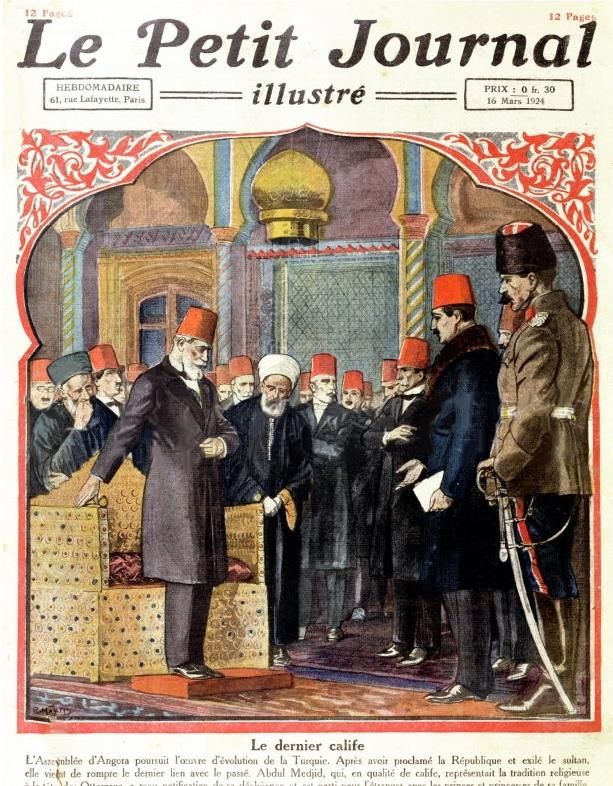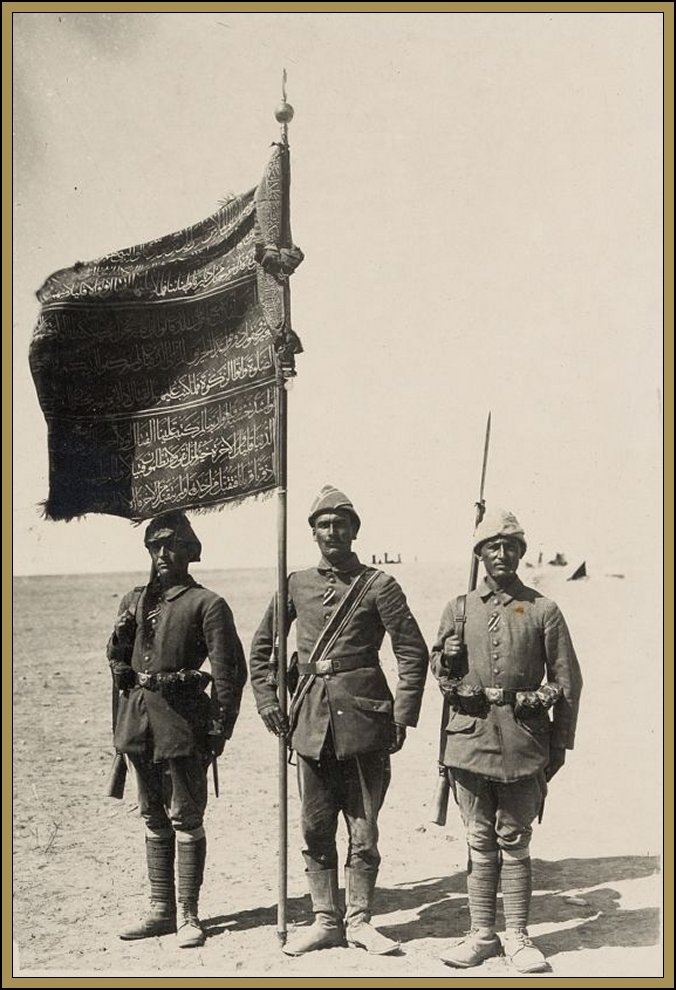
THE HEARTBEAT OF THE WORLD’S MUSLIMS WAS IN ISTANBUL
The title of Caliph and “Amir al-Mu’minin” (Commander of the Faithful) was given to the ruler who acted as the head of state on behalf of the Prophet Muhammad (Peace Be Upon Him). It was also used for Ottoman sultans after the 16th century, signifying that the sultan was simultaneously the "Leader of the World’s Muslims."
The early Ottoman sultans, though symbolically, paid homage to the caliph in Cairo. After Sultan Selim I’s conquest of Egypt, the Abbasid caliphate ended, and the titles of sultan and caliph were united in the Ottoman sultan.
Thus, the caliphate, which had held only spiritual authority for nearly five centuries, regained temporal authority. The Shaybanid Khanate in Turkestan, the Sultanate of Gujarat in India, the Gurkani Empire beginning with Emperor Humayun, the Kashgar Khanate, and in 1727, Iran, declared that they recognized the Ottoman sultan as the caliph of all Muslims.

SUBTLE DIPLOMACY
The Ottoman sultans’ emphasis on the title of caliph intensified in later centuries, knowing that it signified the head of state rather than a spiritual leadership within Islam. From the 18th century onward, as territories with Muslim populations, such as Crimea, were lost, the Ottoman sultan, in a strategic move, asserted a spiritual authority based on the caliphate to protect the religious and temporal interests of Muslims in these lands.
This claim was accepted by the international community, becoming official through the Treaty of Küçük Kaynarca (today Kaynardzha, Bulgaria) in 1774 after the first Ottoman-Russian War, which ended in defeat. Thus, the sultan, who until then held temporal authority only over his own subjects, attained a spiritual status akin to the Pope’s influence over Catholics outside the Papal States, as a caliph exercising spiritual authority over Muslims beyond Ottoman borders.
The Ottomans’ emphasis on the caliph title, especially on the international stage, does not imply that they were not previously considered caliphs or that the caliphate was solely a symbolic or spiritual office. This policy was rooted in pragmatic and diplomatic considerations. Sultan Abdulhamid II particularly highlighted this title, seeing it as conducive to the cause of Islamic unity. He built madrasas (Islamic schools) in occupied Muslim lands, sent books and scholars. Through these efforts, many Muslims under colonial rule turned their attention to Istanbul.
In line with the Qur’anic verse, “Obey those in authority among you!” and the hadiths stating that whoever dies without swearing allegiance to the caliph of the time will die like those who lived in jahiliyyah (the age of ignorance, without spiritual guidance in the pre-Islamic period) and prohibiting living in a town where there is no sultan, in the absence of a caliph, loyalty, even if spiritual, to the scholars and a representative who acts according to their words is envisaged. Despite having limited political power, the caliph in Istanbul kept the aspirations for unity and independence alive among the world’s Muslims.
BRITAIN’S CONCERN
In lands under non-Muslim rule, including Russia, Romania, Serbia, Bulgaria, Cyprus, Bosnia-Herzegovina, and Greece, muftis (legal advisors) and qadis (judges) appointed from Istanbul continued to serve. Acting as representatives of the caliph, they sought to enforce Islamic law, supported waqfs (Islamic foundations), Muslim schools, and publications. Even today, muftis in Greece oversee religious and legal matters for Muslims.
This policy bore fruit at the start of the 20th century. Colonized Muslims, particularly in Turkestan and India, provided incredible financial and moral support during the occupation of Anatolia.
Britain, which controlled a quarter of the world and had a significant Muslim population, grew wary of the caliph’s influence and concentrated its 19th-century policy on weakening and abolishing the caliphate.
After the Second Constitutional Era and World War I, it achieved this goal. In 1909, the caliph’s temporal power was trimmed. On November 1, 1922, with the abolition of the sultanate, the caliphate was separated from the sultanate, leaving it as a symbolic office without executive authority.
The Assembly in Ankara appointed Crown Prince Abdulmejid II to this position after Sultan Mehmed VI was forced to leave the country. Mehmed VIs declared that this law, which amended the constitution, could not take effect without the sultan's approval, deeming it unconstitutional and asserting that the sultanate and caliphate could not be separated. He criticized his cousin for accepting such an office.
PRESSURE SUCCEEDS
It is said that Mustafa Kemal Pasha wished to preserve the caliphate, which held a significant role in world politics, and that this wish was a factor in the temporary suspension of the Lausanne negotiations.
However, unable to withstand British pressure, as Britain governed millions of Muslims in its colonies, the Ankara Government abolished the caliphate by law on March 3, 1924. The Ottoman dynasty, one of the world’s oldest families, was exiled in its entirety, including women, children, and the elderly.
This event, met with astonishment and outrage in the Islamic world, prompted figures like King Fuad of Egypt and Sharif Hussein of Mecca to attempt to revive the caliphate within their own personas, but they achieved nothing due to both the Muslim world’s lack of support and British obstruction.
Several caliphate councils convened by the world’s Muslims also yielded no result. Thus, this ancient institution of Islamic history faded into the past. Recently, the United States and Britain have raised the prospect of reviving the caliphate to combat terrorism and centralize control over the Islamic world…
Önceki Yazılar
-
"WOE TO THE ENEMIES OF THE REVOLUTION!" What Was The People’s Reaction To The Kemalist Revolutions?2.07.2025
-
DEATH IS CERTAIN, INHERITANCE IS LAWFUL!25.06.2025
-
THE SECRET OF THE OTTOMAN COAT OF ARMS18.06.2025
-
OMAR KHAYYAM: A POET OF WINE OR THE PRIDE OF SCIENCE?11.06.2025
-
CRYPTO JEWS IN TURKEY4.06.2025
-
A FALSE MESSIAH IN ANATOLIA28.05.2025
-
WAS SHAH ISMAIL A TURK?21.05.2025
-
THE COMMON PASSWORD OF MUSLIMS14.05.2025
-
WERE THE OTTOMANS ILLITERATE?7.05.2025
-
OTTOMAN RULE BENEFITED THE HUNGARIANS30.04.2025